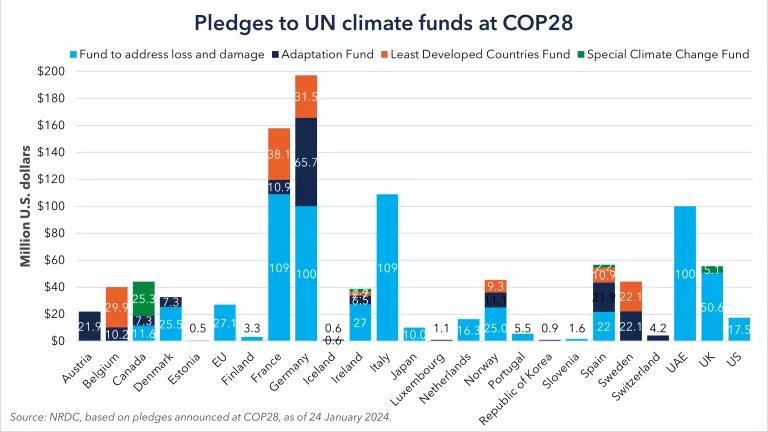Australia takes next step in cutting carbon pollution: mandatory reductions for major polluters
The Australian government has just unveiled details of its new mandatory program to reduce carbon pollution from major polluters. This is another sign that countries are moving forward with actions to address global warming by taking the necessary steps at home to change their laws and policies. Australia previously had committed to reduce their emissions by 5% from 2000 levels by 2020 regardless of what other countries do. And they have committed to reduce emissions by up to 15-25% with significant global action. The proposed package that was just released would turn those commitments into actions at home. There are promising signs that this package will be enacted into law.
So what would this new law do if enacted? Here are the highlights (full details here):
- Largest polluters required to curb their carbon pollution. The program would require the 500 largest polluters—e.g., electricity and industrial companies—in Australia to pay for their carbon pollution. This would cover over 60% of Australia’s emissions. Beginning July 1, 2012 these companies would be required to pay about $24 per ton of carbon pollution (23 Australian dollars per ton). The price would rise by rise 2.5% per year till until July 2015 when these companies will be subject to a cap on their carbon pollution – through an emissions trading program.
- Fixed carbon pollution limits will be set beginning in 2015. An independent body – the Climate Change Authority (similar to such a body in the United Kingdom) – will be tasked with recommending specific pollution limits for each five year period. The government is required to consider the recommendations of this body in defining the legal pollution limits. The Australian government will announce the first 5-year carbon pollution limit – or carbon budget – no later than May 31, 2014. Each year the pollution limit will be extended by one more year so companies will always see defined 5-year pollution limits in which to plan their investments.
- More aggressive 2050 pollution limits will be enshrined into law. As part of the new proposal the Australian government strenghtened its 2050 target for emissions reductions from 60% to 80% below 2000 levels. This long-term target will guide near-term action as the 5-year carbon budgets will have to ratchet down over time to meet this 2050 target. So if this legislation passes Australia would be on a legally required pollution reduction path to cut their emissions by 80% in 2050. That is an important trajectory for a country that is currently dominated by fossil fuel for its energy needs.
- Providing incentives for low-carbon energy. The proposal would create a new Clean Energy Finance Corporation that will provide over $10 billion in funding over 5 years for renewable energy and other clean energy through loans, loan guarantees, and equity. The legislation would also establish a Clean Technology Investment Program that would provide over $1.2 billion over 7 years to support Australian manufacturer’s investments in energy efficiency and renewable energy.
- Assisting households. The legislation would use more than 50% of the revenue from the carbon pollution limits to assist households. The support will be delivered through income tax cuts for low and middle-income households and increased retirement payments.
Another country is taking action at home to address their carbon pollution. While we won’t know for several months whether Australia will enshrine this new step into law, there are promising signs that a majority of politicians in Australia will vote yes. If they do take this step it would be another clear sign that major polluting countries are moving forward with their commitments to reduce carbon pollution. After all Australia is the 11th largest emitting country in the world and a major consumer and producer of fossil fuels. So I hope that politicians in Australia will follow the lead of our colleagues in Australia who are urging politicians to: “Say yes to a carbon price”.]



